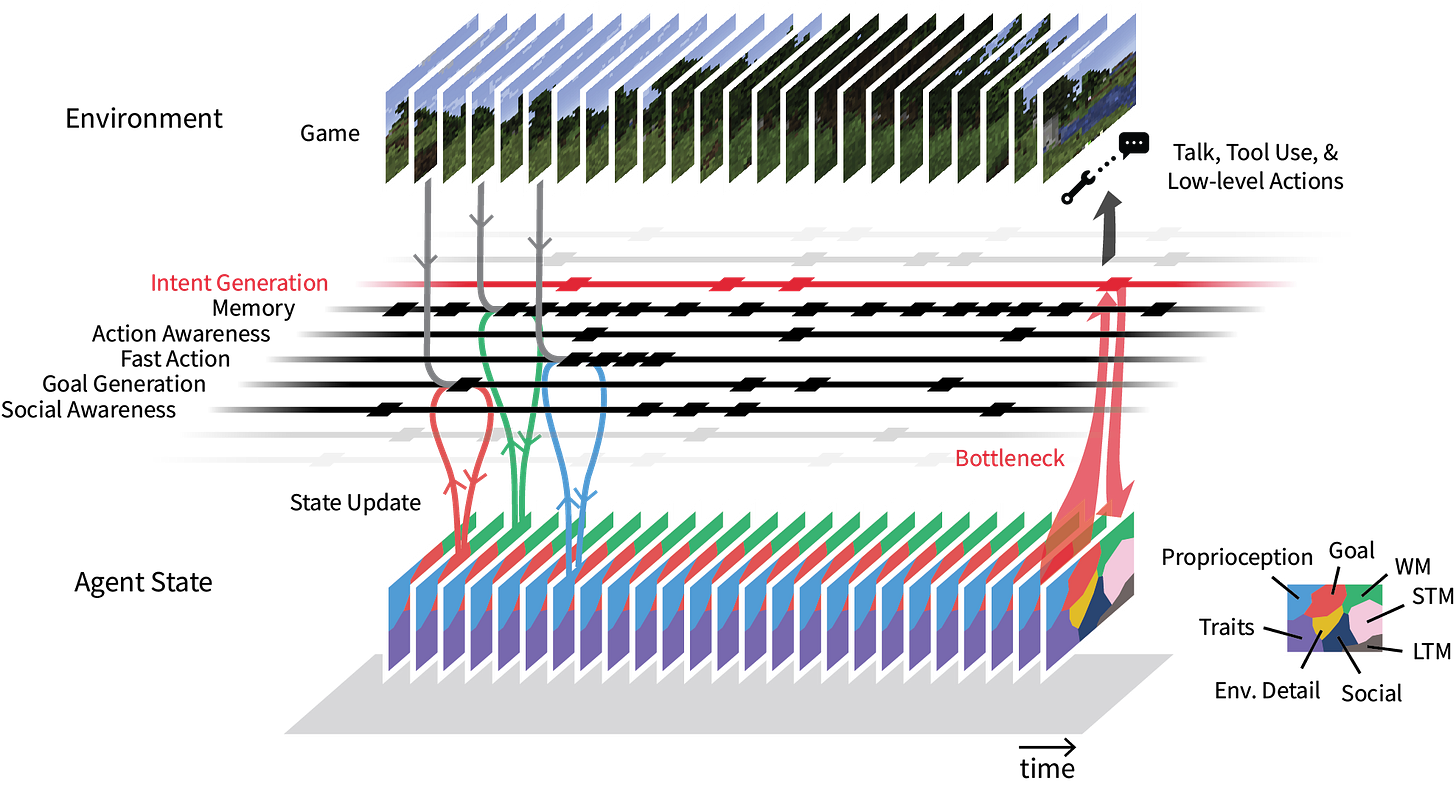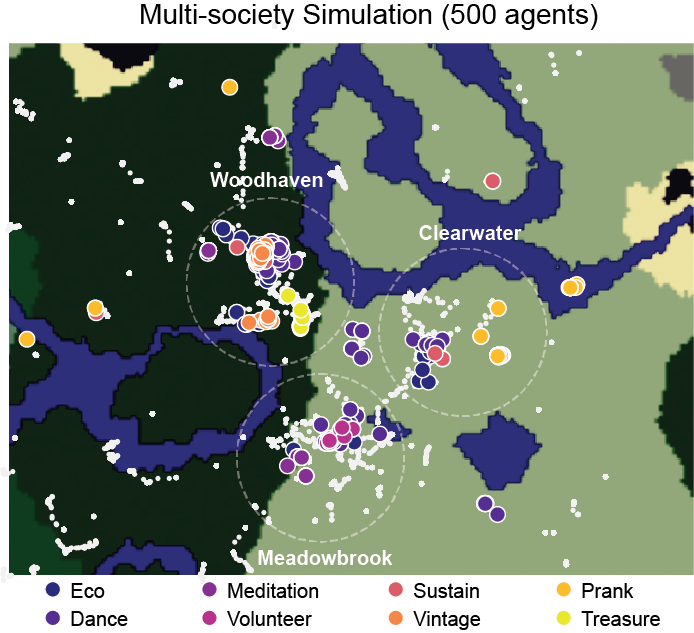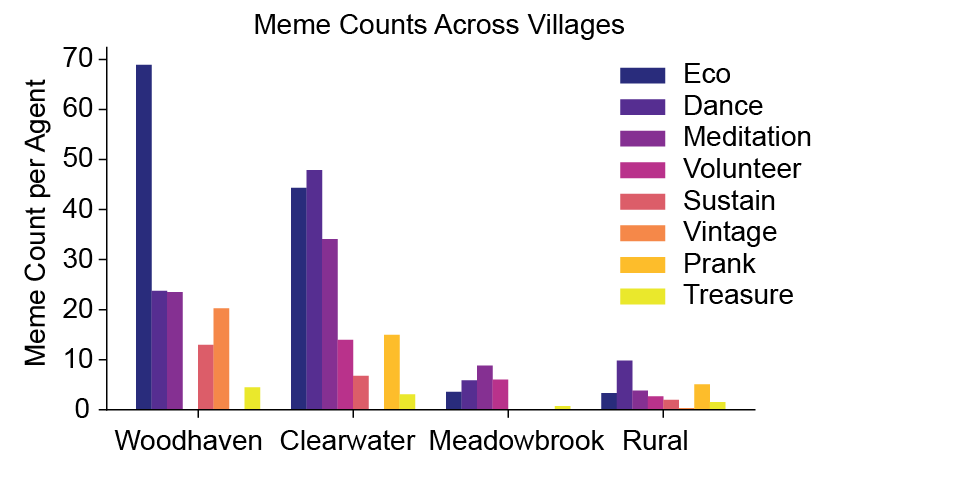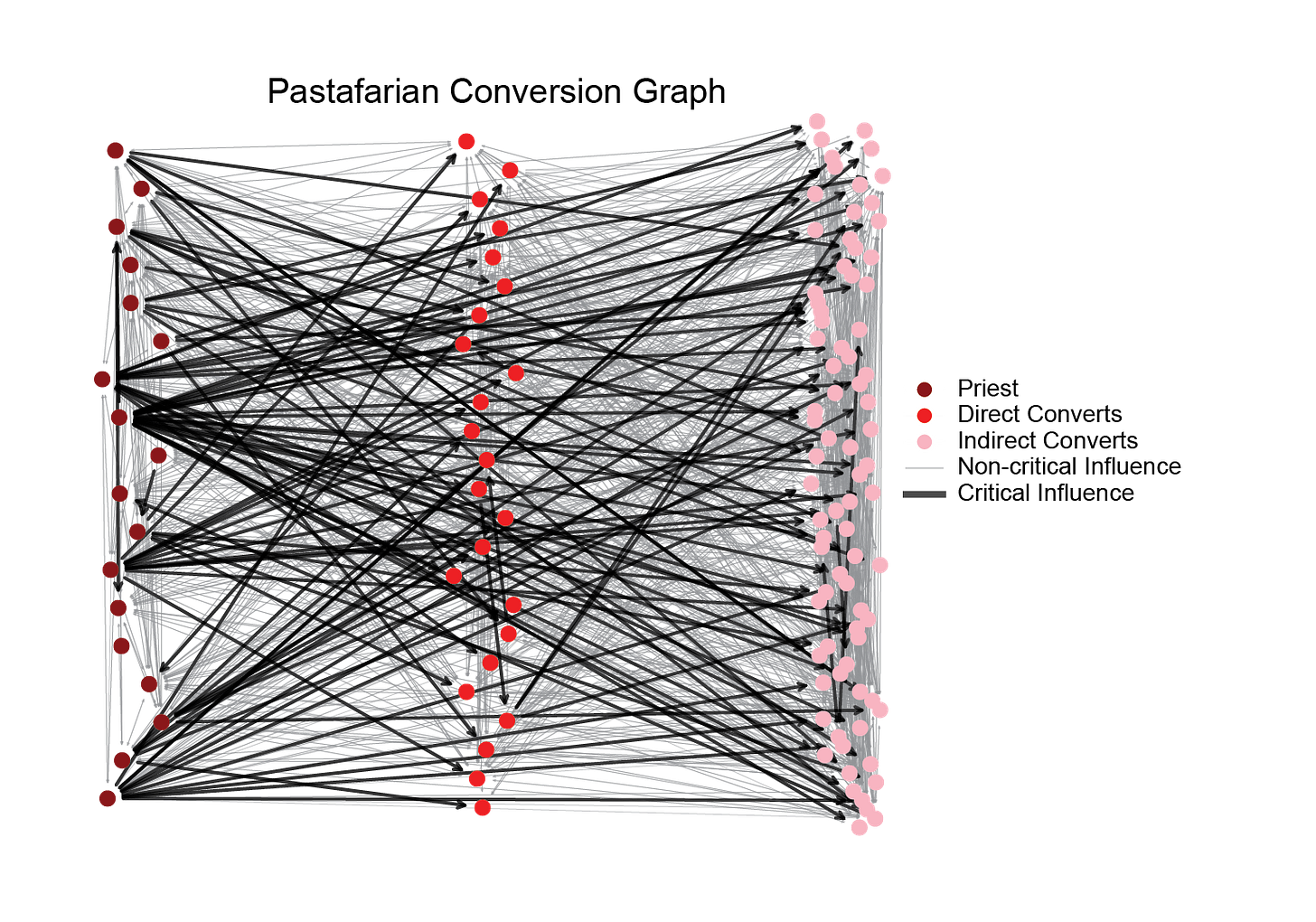Project Sid: Many-agent simulations toward AI civilization
PIANO Architecture & Specialization, Law, Culture, and Religion in AI Civilizations
Introduction
Project Sid represents a new frontier for Altera.AL, where our focus isn’t on building rigid machines, but on autonomous, empathetic, and social agents that catalyze our growth as humans. Through large-scale simulations of thousands of agents, we show that our AI agents can achieve meaningful civilizational progress: specializing in professions, adhering to laws, spreading cultural memes, and propagating religions. These early results hint at how AI civilizations might integrate with human societies.
For the complete technical report, see https://github.com/altera-al/project-sid (or https://arxiv.org/abs/2411.00114).
The Real-Time Multi-Agent Challenge
Building AI agents that coexist with humans requires more than individual autonomy. They must understand others’ actions and intentions, collaborate in groups, and function within large communities. While recent AI advances have improved agent autonomy and decision-making, creating agents that use social intelligence to make progress together in a society remains a fundamental challenge.
As humans, we seamlessly thread our focus between moment-to-moment interactions and longer-term pursuits. For agents to take up the task of realistic interaction with humans, they require concurrent streams of thoughts and actions, operating over a multitude of timescales. This diverges from the current paradigm of building AI agents as sequential function calls–even if they “think fast or slow” at every step.
PIANO
To address these challenges, we developed PIANO (Parallel Information Aggregation via Neural Orchestration), an architecture that enables agents to run multiple processes concurrently while maintaining cohesive behavior through a central decision-making system. This brain-inspired design allows agents to operate in real-time environments and process numerous input streams. This allowed us to improve single- and multi-agent progression within large civilizational simulations, detailed below.
Key Discoveries
We first examined whether PIANO agents can organize themselves into specialized professions. In a single Minecraft village, we placed 30 PIANO agents who started out identical. Through social interactions, they not only understood the social motivations of fellow agents but also used this information to generate their own goals. As a result, they specialized into unique roles. Farmers concentrated on seed collection and land preparation, while artists dedicated time to gathering flowers. Importantly, specializing into diverse professions emerged only with social awareness; limiting agents’ social perception led to uniform, repetitive actions without distinct roles.
We also studied how AI societies handle collective rules. We asked if a society of 25 constituent agents can follow taxation laws and amend them using a democratic voting system. Initially, agents adhered to established rules by maintaining tax payments at mandated intervals. However, as influential individuals shifted public opinion, constituents voted to adjust tax rates, and agents adapted their payments accordingly. These findings suggest that agents respond to collective rules and can be influenced to amend them.
In our final experiments, we examined large-scale social dynamics across multiple agent societies. These simulations occurred at an unprecedented scale – 500 agents distributed across six towns and rural areas. In these simulations, we analyzed how cultural memes and religions spread. Memes are open-ended concepts spontaneously generated by agents with diverse traits and interests, whereas religion in our simulation - Pastafarianism - is a fixed doctrine introduced and propagated by a specific group of Pastafarian priests.
Within towns, agents engaged in meme discussions on topics like dancing, eco-awareness, and pranking. Notably, urban areas generated more cultural content than rural regions, leading to distinct cultural identities- Woodhaven, for instance, adopted environmental themes, while Clearwater embraced a pranking culture.
In the same simulation, Pastafarianism also spread through proselytization, gradually influencing agents in urban and rural areas. References to the “Spaghetti Monster” and “Pastafarian” made their way into their thoughts and conversations. Unexpectedly, agents also casually talked about "pasta" and "spaghetti", often in the context of hosting religious-themed parties. This phenomenon revealed broader cultural diffusion - analogous to how religious concepts, such as breakfast, enter into everyday speech. These simulations demonstrate that AI societies can develop unique cultural identities and maintain complex belief systems.
Conclusion
Our simulations reveal how the PIANO architecture allows agents to navigate real-time multi-agent environments. In our civilization experiments, agents evolved specialized roles, participated in democratic systems, and engaged in cultural exchange. This is, however, an early step. Our agents still struggle with fundamental capabilities, such as spatial reasoning and physical coordination, and they lack the intrinsic human drives—survival, curiosity, and social bonds—that propel societal evolution. As we continue to advance our agents, we edge closer to a future of artificial societies meaningfully coexisting with human civilization. If this vision resonates with you, we invite you to join us on this journey.








Dude, I think we're better off studying a fricken ant colony as a civilization simulation than using the PIANO model. Needs emotionally-integrated cognitive architectures (EICA).
Hi, i remember playing with that AI on altera launcher, but now i cant even find site. i saw this and saw that you need to pay in some places. I am scared that this good project will be needed to pay for playing with it.
Also will it be released back again?